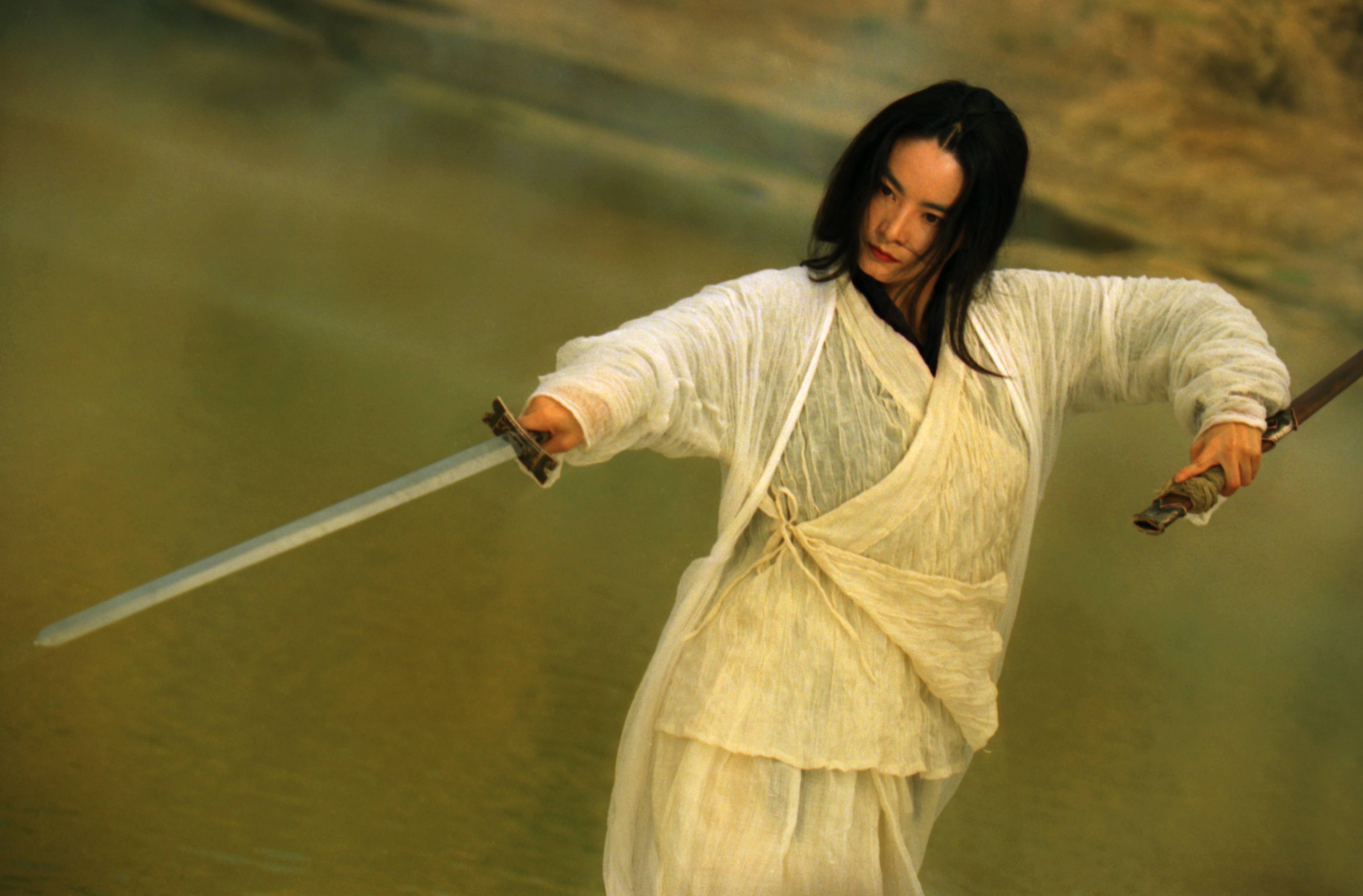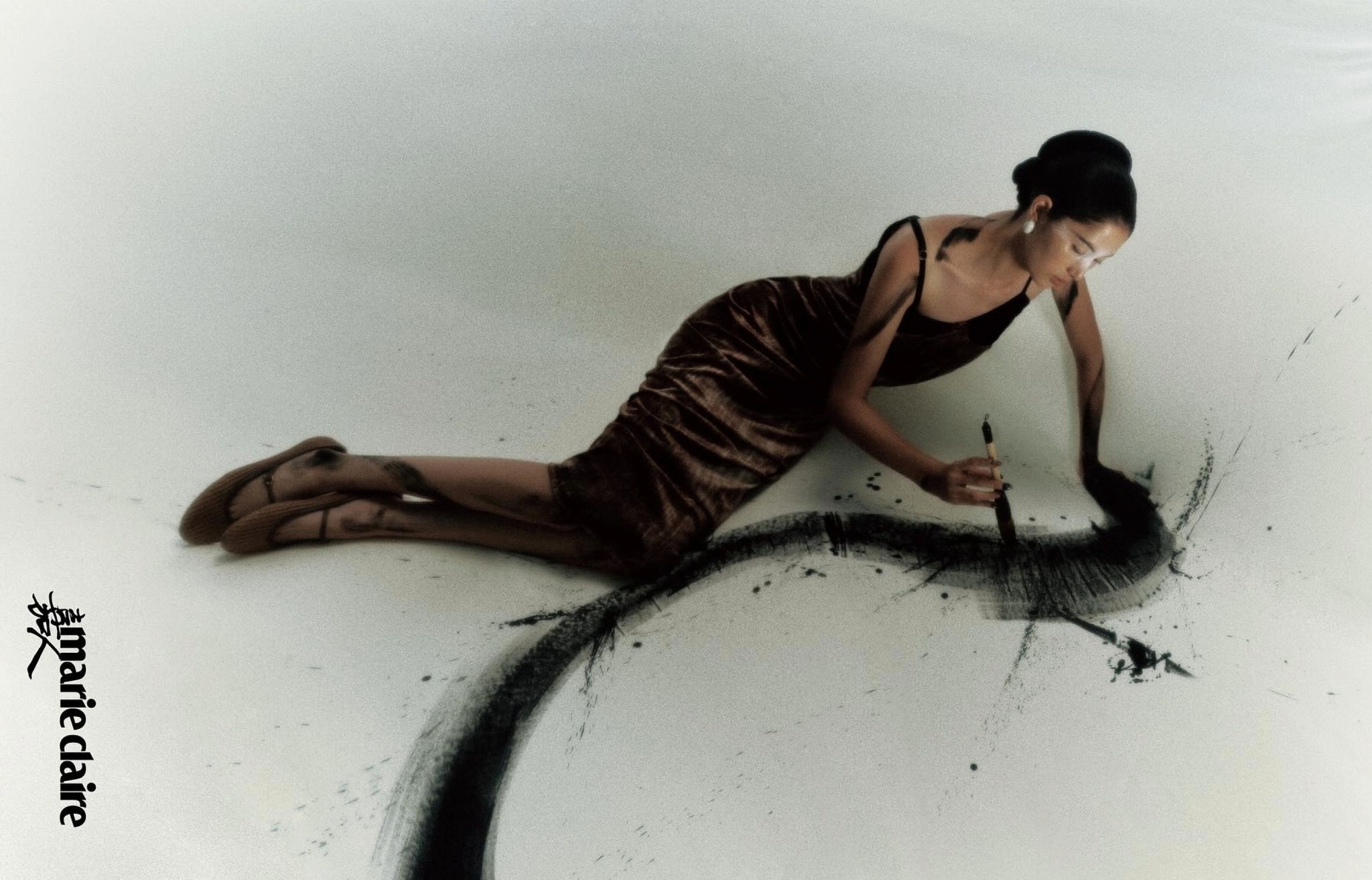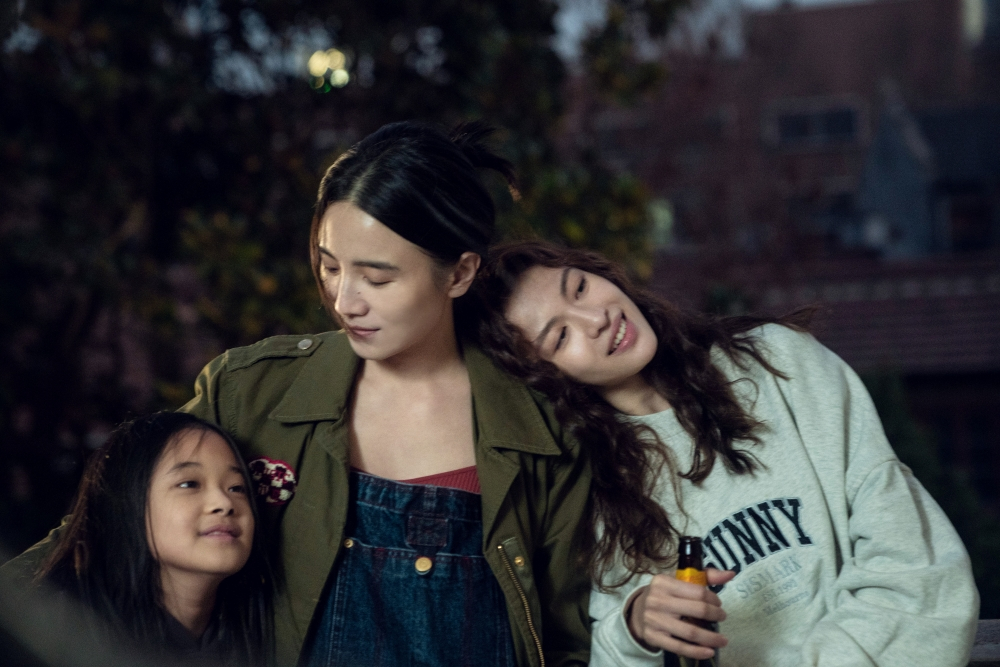March 8 is International Women’s Day, “a global day celebrating the social, economic, cultural, and political achievements of women.” To mark this important day, here are 8 outstanding female figures, both past and present, whose stories are well worth you knowing.
Ruan Lingyu: The Legendary Silent Film Actress
One of the most prominent starlets of the early 20th Century, Ruan Lingyu was a household name in China during Shanghai’s cinematic “Golden Age.” Since the inception of her career in 1926, she portrayed various iconic roles such as Yang Naifan in Love and Duty (1931), Zhou Shuzhen in Three Modern Women (1931) and a mother in The Goddess (1934), which was hailed as the pinnacle of Chinese silent cinema and saw her bring nuance and empathy to the role of a loving mother forced into prostitution.
Related:
 12 Classic Chinese Films are Now Available for Free on YouTube with English SubtitlesSome of the most important movies from China’s first “Golden Age” are now availableArticle Apr 16, 2020
12 Classic Chinese Films are Now Available for Free on YouTube with English SubtitlesSome of the most important movies from China’s first “Golden Age” are now availableArticle Apr 16, 2020
However, her career was short-lived as she committed suicide in her own apartment on International Women’s Day in 1935 following harassment from the media over her personal life. Her story was later made into a film by the Hong Kong director Stanley Kwan. In Kwan’s film, Center Stage, Ruan was portrayed by another iconic female figure, Maggie Cheung.
Yang Li: The Comedian Who Exposed Sexist Double Standards
Yang Li was largely unknown in the entertainment world this time last year. But following her winning streak on TV stand-up comedy contest Rock & Roast, she rose to prominence in late 2020.
Yang became known for her self-deprecating sense of humor, tackling controversial gender issues such as domestic violence and fear of marriage; the punchline from one of her most popular jokes — “How can men be so ordinary, yet so full of themselves?” — became one of the biggest memes among feminist internet users in 2020.
Related:
 Comedian Sparks Backlash and Discussion Over “Man-Hating” JokesSome users reported the comedian to authorities, while others rushed to her defenseArticle Dec 30, 2020
Comedian Sparks Backlash and Discussion Over “Man-Hating” JokesSome users reported the comedian to authorities, while others rushed to her defenseArticle Dec 30, 2020
Her routine also made her a lightning rod for controversy with some on social media accusing her of provoking “antagonism between men and women” and inciting “hatred towards men,” while a law professor at Peking University responded to her famous one-liner by stating, “A man may be average, but you are likely ugly without make-up.”
Unfazed, Yang has continued to take aim at mansplaining and misogyny, while also ensuring such issues are widely discussed on social media.
Zhang Ailing: The Renaissance Woman
You might not have read Love in a Fallen City, but you’ve almost certainly heard of Ang Lee’s film Lust, Caution. The film was adapted from a 1979 novella by modernist writer Zhang Ailing, also known as Eileen Chang, who attracted considerable controversy for the story due to her own love affair with a wartime Japanese collaborator.
Related:
 10 Great Works of Chinese Fiction to Read in the Age of CoronavirusFrom science fiction to classic romance, add these 10 Chinese fiction books to your reading listArticle Mar 31, 2020
10 Great Works of Chinese Fiction to Read in the Age of CoronavirusFrom science fiction to classic romance, add these 10 Chinese fiction books to your reading listArticle Mar 31, 2020
Zhang was born in Shanghai in 1920 and educated in Hong Kong. Her writing was heavily influenced by her wartime experiences under colonial rule in both cities. While her stories explored various themes, there was one common element between them: they all featured evocative female characters. Intelligent, vicious, and tragic women were all main subjects of her narratives, interwoven with critiques of a patriarchal society as well as a moving sympathy for those who had little control over their own destinies.
Outside of her writing career, Zhang was also a screenwriter, translator and a designer for women’s clothing.
Zhao Wei: A Champion for Women’s Stories
Zhao Wei’s take on Mulan in the 2009 film of the same name remains iconic. But her fight for female representation has gone well beyond her portrayal of the famous female warrior figure.
Pretty much every single Chinese person sees her face on their TV screen during the summer holidays, when the iconic 1999 drama My Fair Princess re-airs every year. After the nationwide success of that show, Zhao also starred in various critically acclaimed films such as Stephen Chow’s Shaolin Soccer and an adaptation of a Pu Songling tale Painted Skin.
Related:
 How Women in Entertainment Fought to Bring Female Narratives to the Fore in 20202020 was a watershed year for female voices impacting deep-rooted social issues in China. Here’s how mainstream entertainment stars brought them to the biggest stagesArticle Dec 23, 2020
How Women in Entertainment Fought to Bring Female Narratives to the Fore in 20202020 was a watershed year for female voices impacting deep-rooted social issues in China. Here’s how mainstream entertainment stars brought them to the biggest stagesArticle Dec 23, 2020
Such roles have helped make her a household name in China, but we’re celebrating her today because of her efforts to uplift women’s voices in mainstream media.
Her 2020 TV show Hear Her put forward eight female-centric narratives that examined issues such as domestic violence, body shaming and familial pressures, with each episode kicking off wide-ranging debates on Chinese social media. At a time when there has been some sensitivity around discussion of such issues in China, Zhao has used her reputation and influence in the industry to bring these important narratives firmly into the spotlight.
Ding Ling: The Revolutionary Writer Who Rocked the Male Establishment
79 years ago in 1942, the day after International Women’s Day, Ding Ling published her essay On March 8th in Liberation Daily (解放日报). She began the essay with a brief question: “In what time and age, will the word ‘woman’ be no longer placed at the center of (unwanted) attention?”
Hailed as a member of the May Fourth Generation, her early prose was associated with the New Woman movement in the 1920s that rebelled against the most oppressive social institutions.
Before dedicating her life to revolutionary writing, Ding’s most prominent work was The Diary of Miss Sophie. Published in 1927, the short story explored the relationship between women’s identity and sexuality, and proved to be an explosive work in the then conservative and male-dominated Chinese literary scene.
Chen Jinnan: The Rapper Who Refuses to Be Silenced
One of the stand-out performers from the biggest rap TV show of 2020 in China, Chen Jinnan has built on Rap for Youth‘s controversial finale to deliver songs and statements on issues such as body positivity and battling with depression, calling on her female peers to love themselves.
Related:
 Why Female Rappers Have Become the Most Exciting Voices in Chinese MusicWhile a gender imbalance in hip hop music in China is still an issue, some of the most exciting rising rappers now are womenArticle Feb 04, 2021
Why Female Rappers Have Become the Most Exciting Voices in Chinese MusicWhile a gender imbalance in hip hop music in China is still an issue, some of the most exciting rising rappers now are womenArticle Feb 04, 2021
Her songs such as “The 87th Weight Losing Attempt,” her repeated message of encouragement for independent women, and her refusal to be silenced on feminist issues even amid controversy mean Chen Jinnan is a figure well worth watching.
Check back on RADII next week when we’ll have a full interview and profile of this rising rap star.
Tu Youyou: The Modest Researcher Who Saved Millions of Lives
Tu Youyou may not be the most familiar name on this list, but we have her to thank for malaria no longer being a prominent disease in much of the world.
Born and raised in Ningbo, on China’s eastern coast, Tu attended Peking University Medical School in 1951. She also underwent training for two and a half years in traditional Chinese medicine after her graduation.
For the rest of her career, Tu took inspiration from traditional Chinese herbal medicines and in 1969 worked as head of the Project 523 research group studying patients infected by malaria. In two years, her team had created 380 extracts from over 200 Chinese herbs and by 1972, they were able to obtain a substance named qinghaosu (青蒿素), now commonly known as artemisinin. Tu herself volunteered to be a human subject for trials of the resulting drug, which later proved to be successful in saving millions of lives in the global battle against malaria.
While Tu’s work was published anonymously and largely went unrecognized by the general public, she was eventually awarded the Nobel Prize in Medicine in 2015, making her the first female citizen of the People’s Republic of China to win a Nobel prize.
Li Na: The Tennis Star Who Went Her Own Way
Li Na is a tennis legend. She became the first Asian woman to win a Grand Slam singles title in 2011, and then the first Asia-born player to be inducted into the prestigious International Tennis Hall of Fame.
Originally, the Wuhan native didn’t even like tennis. But she didn’t have much of a choice — her father sent her to a state-run sports school at the age of five. Since then, Li’s insistence on following her own path has made her a role model for young people in China.
Related:
![]() Li Na – Tennis Legend and Tireless Champion – is Now a Hall of FamerChinese tennis legend becomes the first Asia-born player to be inducted into the International Tennis Hall of FameArticle Jul 22, 2019
Li Na – Tennis Legend and Tireless Champion – is Now a Hall of FamerChinese tennis legend becomes the first Asia-born player to be inducted into the International Tennis Hall of FameArticle Jul 22, 2019
During her career she fought against a burnout-inducing training schedule, a supervisor’s attempt to put her on hormone medication, and the efforts of state coaches to squash her romance with male teammate Jiang Shan. These pressures would eventually drive her to quit mid-career, drop out of the national training center and run away to join a university with her then-boyfriend and now-husband, Jiang.
Li Na deserves all our praise, on and off the court.
Additional reporting: Adan Kohnhorst


















